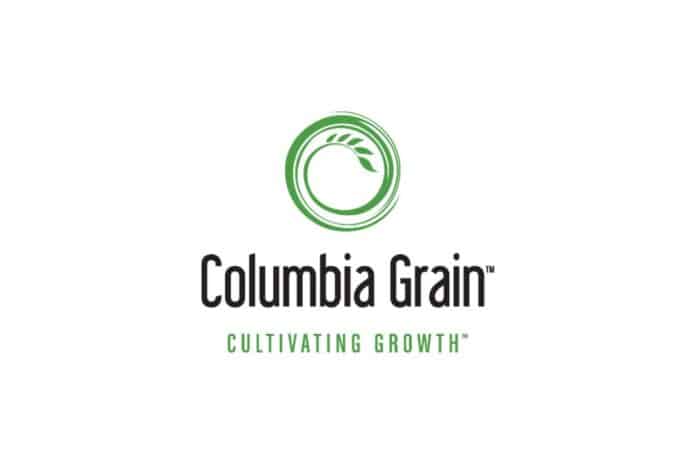PORTLAND, OR (NOVEMBER 2023) — With 2023 coming to a close and 2024 just around the bend, many are pondering the future predictions for agriculture. Columbia Grain International (CGI™) is redefining and enhancing their services to support producers and customers in an evolving agricultural landscape. CGI’s President & CEO, Jeff Van Pevenage, discusses what he foresees are 2024’s top agriculture trends, where the industry is headed, and why Columbia Grain is forging new paths to cultivate growth in its mission to nourish the world, safely.
Regenerative Agriculture
“Regenerative agriculture is becoming more mainstream and many companies are investigating how scalable it is. Reducing the agricultural carbon footprint is top of mind, and here at Columbia Grain we are looking for new opportunities and technologies to support producers,” says Van Pevenage. This year, Columbia Grain’s Enrich Foods partnered with AgriCapture to bring sustainably-grown, certified climate-friendly rice to retail markets through their Great River Milling brand.
After the implementation of the Inflation Reduction Act, the U.S. government has issued numerous grants which promote climate-friendly practices within agriculture. Climate-friendly long grain white or brown rice can be grown and harvested in ways that reduce greenhouse gas emissions, improve soil health, and conserve water.
“However, Columbia Grain has been a champion of regenerative agriculture for decades,” says Van Pevenage. “Back in the early 2000s, Columbia Grain was instrumental in supporting the introduction of pulses, lentils, and chickpeas as viable rotational crops for producers across the Pacific Northwest by making markets for our customers both here in the U.S. and abroad. We are still one of the largest lentil handlers in the U.S. and are an expert on the importance of lentils in a farmer’s crop portfolio to benefit the farmer and the sustainability of the planet. Adding lentils to crop rotations fulfills a demand for this popular food, while improving soil health, reducing greenhouse gas emissions, and storing up to 30% more carbon in the soil than most other plants.”
Columbia Grain is currently investigating how it can market new climate-friendly crop varieties that go beyond rice, including chickpeas, lentils, and durum wheat (for use in climate-friendly pasta products). They are also in discussions with partners regarding sustainable corn platforms. Their climate-friendly rice is now available on Amazon, and is quickly moving into food supply chains. It is being actively marketed into foodservice channels and is now sourced by Chipotle.
The Rise of Specialty Crops
CGI predicts more oilseed processing will come online in 2024 due to the growing biofuel demand that has occurred over the past few years in the U.S. and Canada. “We are expanding our Great Falls, Montana facility for enhanced oilseed production capacity, while opening up more opportunities for producers which will allow them to grow more oilseeds as a rotational crop in Montana,” says Van Pevenage. Van Pevenage also states that due to the slowed growth of the grain business and a poor export market over the past year, the trend will veer towards more specialty crop production. While they build out their specialty crop business and increase their capabilities at their current facilities, Columbia Grain plans to originate more crops within their footprint and will look to acquire more businesses within this space. “We see great potential in the chickpea market, here in the U.S. People are steering away from plant-based meats and want plant-based ingredients. They don’t want to incorporate ingredients like chickpeas into fake products, they want to figure out how to incorporate them into natural, protein-rich products,” says Van Pevenage.
Precision Agriculture
“We will see more innovations and advancement in the precision ag category in 2024 especially as producers experience higher input costs due to inflation. Producers want precise input consumption, which includes wasting less fertilizer and seed to lower their costs, while still bringing in better yields. Our agronomy business is helping with this through field mapping. We want our producers to know exactly how much input they are applying, where they are applying it in the field, and how to put more of it into the spreader to utilize soil samples, which we get throughout the year to chart progress,” says Van Pevenage.
Producer Solutions
“Producers experienced lower overall prices and lower overall income this year due to competitive worldwide prices and record crops in other countries. They came off last year with a record high. Our job is to listen to the producer, and to open up a conversation about how we can collaborate with them to better suit their size, scope, and growth goals,” says Van Pevenage. With predictions for another year of elevated input costs and tighter margins for agriculture in 2024, Columbia Grain urges producers to explore their Producer Solutions platform, which offers up-to-date targeted marketing insights and education to help producers gain the competitive advantage, even in volatile markets. The platform fosters connectivity, reliability, and trusted relationships with each farmer, bringing them marketing products and risk management consulting that will address their specific challenges.
Weather Challenges
“An El Nino in 2024 could bring surging temperatures, higher food prices, and stubborn inflation,” says Van Pevenage. “Drought conditions in Asia, Australia, and parts of Brazil as well as wetter weather in the U.S. may impact crop yields which will affect commodity prices in the short and medium term. The fact that over half of global food production occurs in only 5 countries, which may all be heavily impacted by El Nino could have outsized implications on global food supply, reducing the availability of key commodities, and pushing up prices,” says Van Pevenage.


